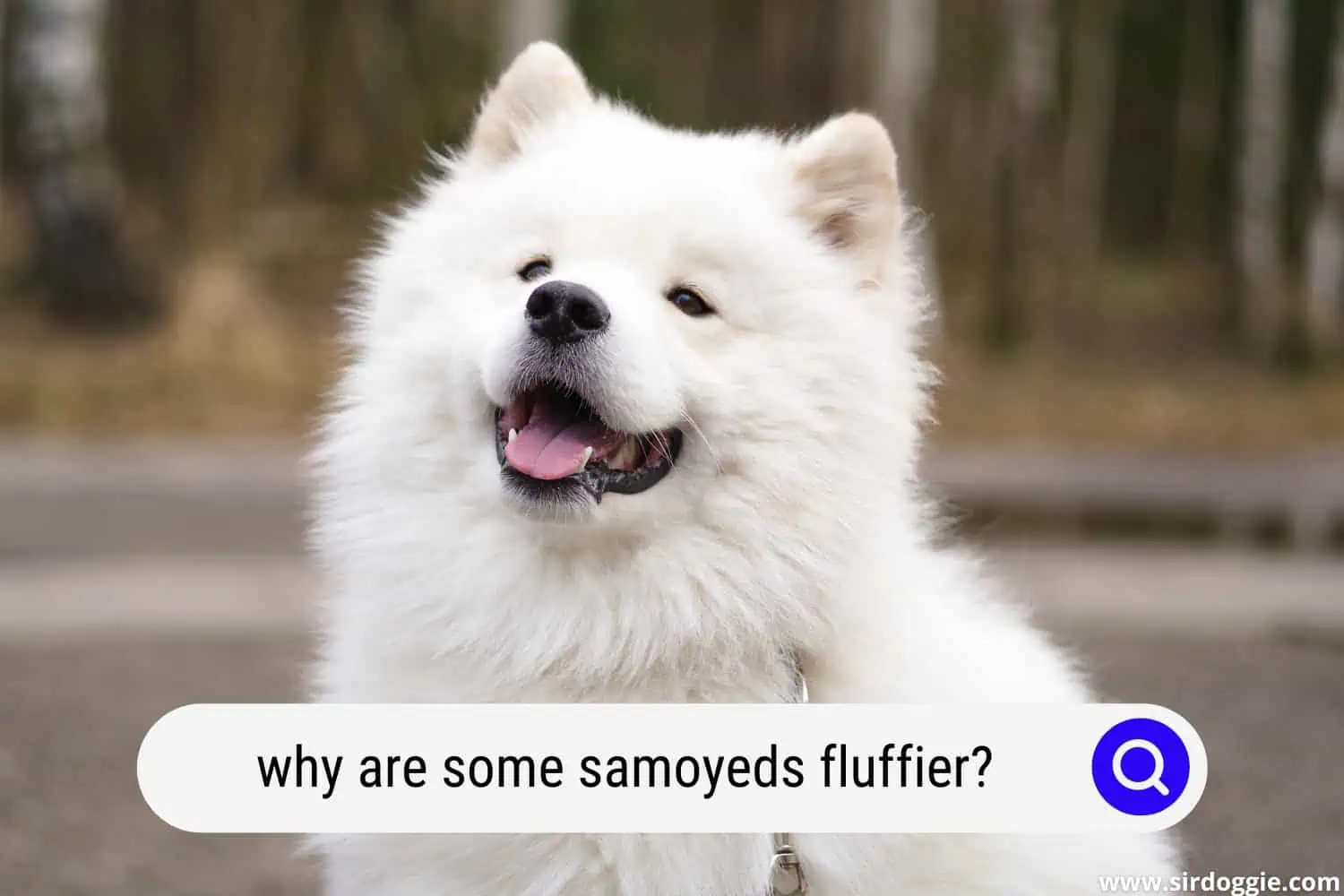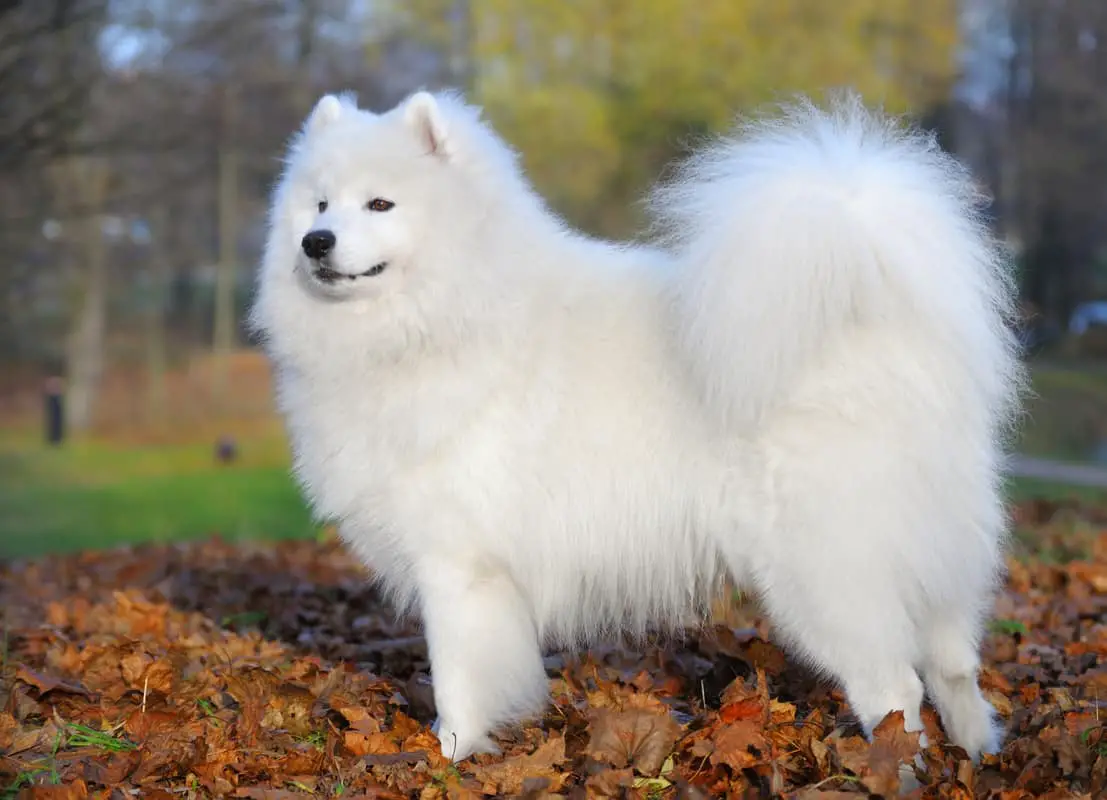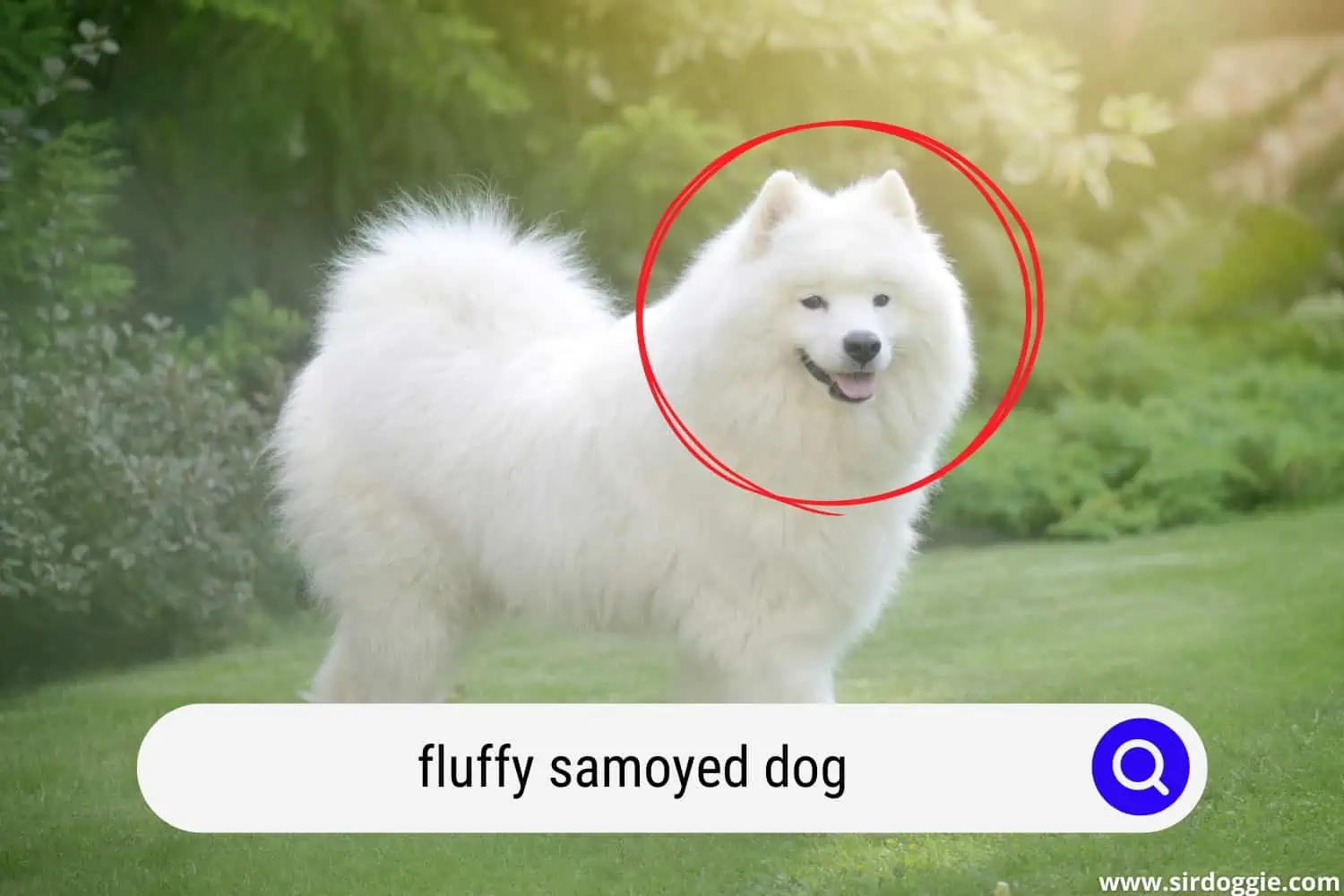Why Are Some Samoyeds Fluffier Than Others?
There is a lot that’s special about Samoyeds. They have a stance that suggests alertness, dignity, and happiness. Sammies are one of the most beautiful dog breeds inside and outside. But the one thing that makes anyone recognize a Samoyed is their coat. Their luxurious white, fluffy coat that we all adore!

If you have a Samoyed puppy, it’s too early for you to worry about their coats.
There are different reasons why your Samoyeds may not be so fluffy. Let’s take a look.
- Genetics: Genetics and health issues can play a part in how fluffy Sammy’s coat appears. The most common reason for your Samoyed’s not-so-fluffy coat is likely due to their lineage. Whatever their parents have, they will likely inherit.
- Diet: Diet has a huge effect on your dog’s coat. Good nutrition can determine how fluffy your Samoyed’s coat is. Ensure your Sammy is getting all vital vitamins, minerals, and antioxidants in their diet. This will contribute to a healthier immune system, skin, and coat.
- Grooming: Being a double-coated breed means shedding! This is exactly why you need a regular brushing routine to maintain your Samoyed’s coat.
- Dry weather: Dry weather can take a toll on your Samoyed’s skin and hair, and the coat will suffer as a result. Dry weather can make Sammy’s fur not so fluffy as dry air can affect their skin and fur coat.
- Health issues: Undiagnosed health issues can cause a Samoyed’s fur coat to be less than fluffy. Some health issues can start with symptoms that show on your Samoyed’s skin and coat. These problems can lead to their coat seeming not quite fluffy.
- Age: Age can also play a role in how fluffy a Samoyed’s coat will be. If Sammy is an incredibly young puppy, it may be best to ignore how their fur looks and focus on good nutrition, training, and overall health of your puppy. Over time, a Samoyed will begin to change and grow in their adult coat. This can take a while, and pet parents won’t likely see that fluffy coat for some time.
Related Reading: Are Samoyeds Cuddly?
Are all Samoyeds fluffy?
The Samoyed has a dense double coat, with a longer outer coat of harsh hair and a soft, thick, wooly undercoat. Your Sammy is supposed to have a beautiful fluffy coat, and they do, except around their face.
Samoyed’s coat usually takes about 2 years to fully grow and become fluffy. Your Samoyed can have a coat that’s less fluffy and this is completely normal and is not a cause for concern. Be patient and don’t worry if your Samoyed is 3 years old and still doesn’t have their “fluffy” coat yet, it may just be a matter of time.

How can you make your Samoyed’s coat fluffy?
Understandably, fluffy coats are desirable, they look great and make your Samoyed extra cuddly. Keeping your Samoyed looking incredible is all about tending to their fluffy tresses.
But not all coats are alike, and they require a lot of work and attention to stay glamorous and amazing. To help your Samoyed grow a fluffy and healthy coat, they need proper nutrition, a good grooming routine, and Omega-3 and Omega-6 fatty acids.
Here are some tips to encourage a soft, fluffy, and healthy coat.
- Have a regular brushing routine: You should be brushing your Samoyed’s hair regularly to increase the production of skin oils. Brushing energizes the skin and promotes the hair follicles’ growth. By brushing regularly, you are giving your Samoyed’s coat the best chance of keeping clean and fluffy.
- Bath with the right shampoo: It is vital to use the right shampoo that is specifically tailored for Sammies. Opt for a mild shampoo to avoid stripping away the natural oils from your Sammy’s skin. Remember to rinse thoroughly with lukewarm water as shampoo leftovers can irritate the skin.
- Feed a healthy diet: Lack of key nutrients is one of the primary sources of poor coat conditions. For your Samoyed’s coat to be glossy and fluffy, you need to feed them the right food with the right nutrients.
- Pack on the omega: Omega-3 and Omega-6 fatty acids are vital to keeping your Samoyed’s coat nice and fluffy. Make sure to give your dog Omega 3 & 6 supplements in moderation. Too much could give your Sammy an upset stomach.
- Protect your Samoyed against parasites: Fleas and ticks irritate your Samoyed’s coat and skin. It makes your dog constantly scratch and bite itself. Parasites can both damage your Samoyed’s coat and cause issues for your dog’s health.
Are male or female Samoyeds better?
Apart from their anatomical differences, male and female Samoyeds are slightly different in looks, temperament, health, and trainability, and how they interact with people and other dogs.
The male Samoyed is more playful, more likely to bond with all family members equally, and more desire to please his owner, while the female Samoyed is slightly easier to train, less demanding of attention, and more cautious with children.
Why are Samoyeds only white?
The Samoyed’s magnificent fur is usually white and extremely thick. They are white or very light in color including biscuit, cream, and white & biscuit.
The Samoyed was bred to pull sleds, hunt, watch over the camp, and keep the people warm in their tents.
Sammies originated in a sub-zero climate where snow’s always on the ground. The white color helped Samoyeds to blend in with their surroundings, which made them more effective as hunters and watchdogs.

Final thoughts
If you still have difficulties in making your Samoyed’s coat fluffy after applying all the tips above, you should talk to your vet or dog groomer. Ask for your vet’s or groomer’s recommendation to meet your dog’s needs.
At the end of the day, all Samoyeds are beautiful in their way just as they are, they just need good care and attention.
Whatever their fur looks, if Samoyeds are healthy, that is all that matters anyway!

Family Dog Expert Author
Hi there! I’m Stuart, a devoted dog lover and family dog expert with over a decade of experience working with our furry companions. My passion for dogs drives me to share my knowledge and expertise, helping families build strong, loving bonds with their four-legged friends. When I’m not writing for SirDoggie, you’ll find me hiking, playing with my beautiful dog, or studying music.